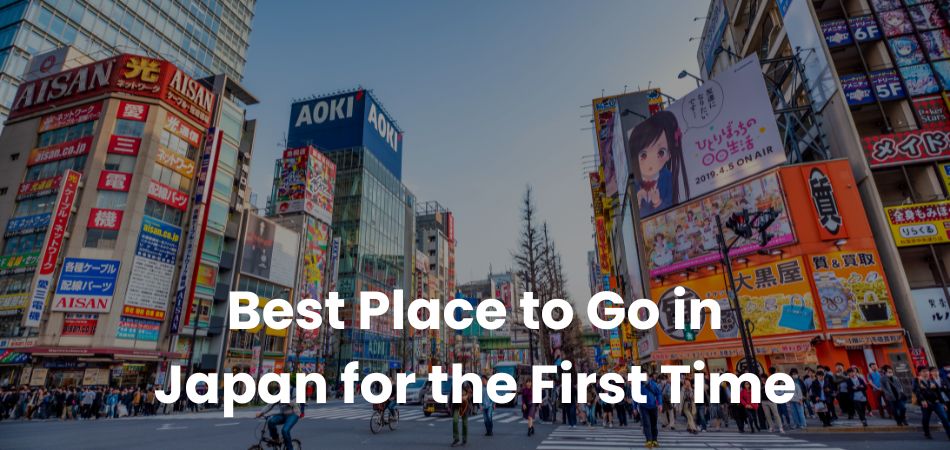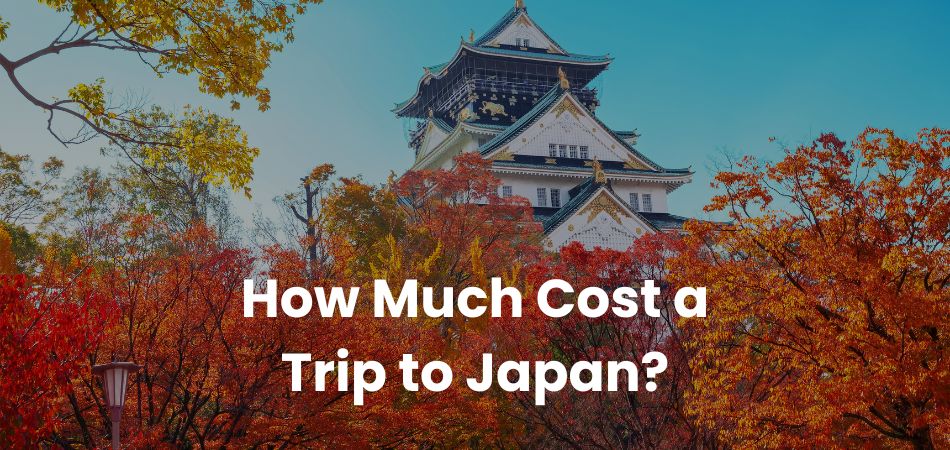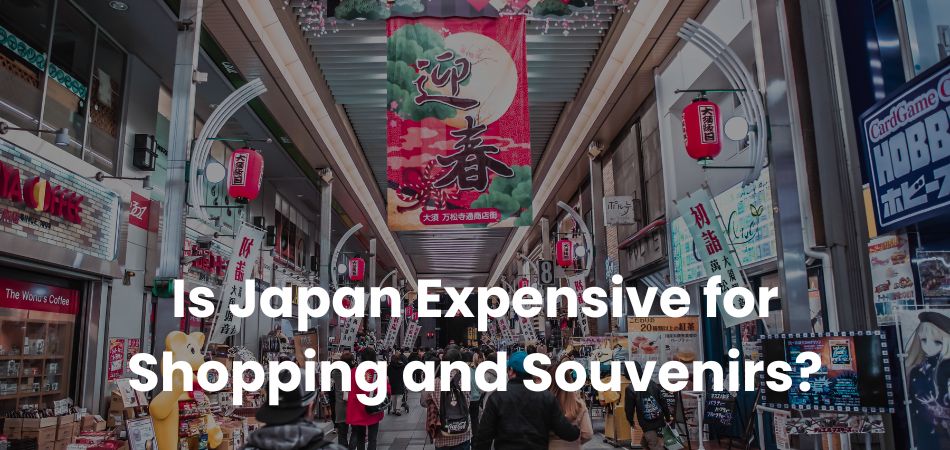Planning a trip to Japan is an exciting adventure filled with stunning natural beauty, rich history, and vibrant culture. Whether you’re dreaming of cherry blossoms in Kyoto, bustling streets in Tokyo, or serene temples in Nara, planning the budget is a key step. So, how much cost a trip to Japan?
A trip to Japan costs $50–$100/day for budget travelers and $150–$250/day for mid-range travelers. Planning ahead and researching activities ensures a budget that suits your needs.
With this guide, you can calculate an affordable budget for flights, accommodation, food, transportation, and activities. So, let’s take a deep breath and get started on planning!
Best Place to Go in Japan for the First Time
Japan is a country brimming with breathtaking destinations, making it hard to choose where to visit on your first trip. From historic temples to futuristic cities, there’s something for everyone to enjoy. To help you plan, here are the best places to go in Japan for first-time travelers, each offering unique experiences that highlight the country’s culture, history, and beauty.

1. Tokyo: A Blend of Tradition and Modernity
Tokyo is Japan’s bustling capital, offering a mix of neon-lit skyscrapers and tranquil historic shrines. Visit iconic spots like Shibuya Crossing and the Meiji Shrine to experience both the modern and traditional sides of the city. Indulge in diverse cuisines, from Michelin-starred restaurants to street food at Tsukiji Outer Market. For a panoramic view of the city, head to the Tokyo Skytree or the Tokyo Tower.
2. Kyoto: The Heart of Japan’s History
Kyoto is known for its timeless charm, with over 1,600 temples and shrines dotting the city. Walk through the famous Arashiyama Bamboo Grove and marvel at the serene beauty of Kinkaku-ji (Golden Pavilion). Don’t miss the historic Gion district, where you might spot a geisha strolling by. Kyoto’s traditional tea houses and ryokan (Japanese inns) offer an authentic cultural experience.
3. Osaka: The Food Capital of Japan
Osaka is a paradise for food lovers, known for dishes like takoyaki, okonomiyaki, and kushikatsu. Explore the vibrant Dotonbori area, famous for its neon signs and bustling nightlife. History enthusiasts will enjoy a visit to Osaka Castle, surrounded by a lush park. For family-friendly fun, Universal Studios Japan is a must-visit attraction.
4. Hiroshima: A City of Peace and Resilience
Hiroshima is a city that blends a tragic past with hope for the future. Visit the Peace Memorial Park and Museum to reflect on its history and the message of peace it promotes. Take a ferry to Miyajima Island to see the iconic “floating” Torii gate of Itsukushima Shrine. Hiroshima is also known for its delicious okonomiyaki, a savory pancake unique to the region.
5. Nara: A Glimpse of Ancient Japan
Nara, Japan’s first permanent capital, is home to some of the country’s oldest temples and landmarks. Visit Todai-ji Temple to see the Great Buddha, one of Japan’s largest bronze statues. Wander through Nara Park, where friendly deer roam freely and bow to visitors. The city’s rich history and tranquil atmosphere make it a perfect day trip from Kyoto or Osaka.
6. Hakone: A Gateway to Mount Fuji
Hakone offers stunning views of Mount Fuji, especially from Lake Ashi or the Hakone Ropeway. The area is famous for its relaxing hot springs, or onsen, making it a great place to unwind. Art lovers will enjoy the Hakone Open-Air Museum, showcasing sculptures in a scenic setting. With its serene atmosphere and natural beauty, Hakone provides a refreshing contrast to Japan’s urban centers.
7. Hokkaido: Nature and Adventure in the North
Hokkaido is a haven for outdoor enthusiasts, known for its pristine landscapes and seasonal beauty. In winter, visit Sapporo for its famous Snow Festival and world-class ski resorts. During the warmer months, explore the lavender fields of Furano or hike through the stunning Daisetsuzan National Park. Hokkaido’s fresh seafood and dairy products are a highlight for food lovers.
Why is Budget Planning Important for Japan Trip?
Budget planning is crucial for a trip to Japan because it helps you manage costs in a country known for its diverse offerings and varying price ranges. While Japan can be surprisingly affordable with proper planning, certain expenses, like transportation and accommodation, can quickly add up if left unchecked.
Setting a budget ensures you can prioritize spending on the experiences that matter most, such as visiting iconic landmarks, enjoying authentic Japanese cuisine, or indulging in cultural activities. Japan offers a wide range of options for every type of traveler, from budget-friendly hostels and street food to luxury hotels and fine dining.
Planning ahead allows you to balance these choices while avoiding unnecessary surprises. For instance, the Japan Rail Pass is a great way to save on intercity travel, but it requires upfront budgeting and purchase before arrival.
A well-thought-out budget also helps you make the most of your trip by reducing stress. Knowing your financial limits ensures you can enjoy the journey without constantly worrying about overspending.
By allocating funds for essentials, leisure, and unforeseen expenses, you’re better prepared for a seamless travel experience. Budgeting transforms your dream trip into an achievable reality, allowing you to explore Japan with confidence and peace of mind.
How Much Cost a Trip to Japan?
Japan offers a diverse range of experiences, but understanding your budget is key to enjoying your trip without financial stress. For a budget traveler, daily expenses can range between $50 to $100, covering basic accommodation, meals, and local transportation.
A mid-range traveler, seeking a balance of comfort and experience, might spend between $150 to $250 per day. Planning and research are essential to make the most of your budget.

Flight costs, accommodation options, and activities in Japan vary widely depending on the season and preferences. Round-trip flights from major international hubs typically cost between $600 and $1,200.
Hotels range from $20 per night for hostels to $500 for luxury stays. Affordable public transportation, such as subways or buses, costs $1.50 to $5 per trip, while meals can range from $5 at casual eateries to $30 at mid-range restaurants.
Here’s a more detailed table with additional expense categories and specific breakdowns for a Japan trip:
| Expense Category | Budget Traveler | Mid-Range Traveler | Luxury Traveler |
| Flight (Round Trip) | $600 – $1,200 | $800 – $1,500 | $1,500 – $3,000 |
| Accommodation (Per Night) | $20 – $50 (hostels, capsule hotels) | $100 – $250 (business hotels, mid-range hotels) | $300 – $500+ (luxury hotels, ryokan) |
| Public Transportation (Per Day) | $5 – $10 (local trains, buses) | $20 – $50 (JR Pass, taxis occasionally) | $50 – $100 (taxis, private drivers) |
| Food (Per Meal) | $5 – $10 (convenience stores, street food) | $15 – $30 (casual restaurants, ramen shops) | $50 – $150+ (fine dining, kaiseki meals) |
| Attractions & Activities (Per Day) | $10 – $20 (museums, temples) | $30 – $70 (cultural experiences, guided tours) | $100 – $300+ (private tours, premium experiences) |
| Shopping (Per Trip) | $50 – $100 (souvenirs, small items) | $200 – $500 (local crafts, fashion) | $1,000+ (luxury goods, designer brands) |
| Miscellaneous | $10 – $20 (snacks, small purchases) | $50 – $100 (extras, spontaneous experiences) | $200+ (spa treatments, exclusive services) |
| Total Cost for 1 Week | $1,200 – $1,500 | $2,000 – $3,500 | $6,000 – $10,000+ |
| Total Cost for 2 Weeks | $2,500 – $3,000 | $4,500 – $6,500 | $12,000 – $20,000+ |
How Much Does Accommodation Cost in Japan?
Accommodation costs in Japan vary widely depending on the type of stay and the city. For budget travelers, hostels and capsule hotels are affordable options, with prices ranging from $20 to $50 per night. These are perfect for solo travelers or those who don’t mind minimalistic arrangements. Additionally, business hotels offer compact yet comfortable rooms starting at $50 to $100 per night.
Mid-range travelers can find more spacious and convenient options, such as boutique hotels or traditional ryokan inns, which typically cost $100 to $250 per night. Ryokan stays often include meals, offering a cultural experience alongside accommodation. Locations like Tokyo and Kyoto may be pricier than smaller cities or rural areas.
For luxury seekers, high-end hotels and premium ryokan with private hot springs can cost $300 to $500 or more per night. These options offer luxurious comfort, personalized service, and a unique way to enjoy Japan’s hospitality.
Is Japan Expensive for Shopping and Souvenirs?
Japan offers a wide range of shopping options, from budget-friendly finds to high-end luxury items, making it accessible for all types of travelers. Traditional souvenirs like Japanese fans, chopsticks, and maneki-neko (lucky cat figurines) are affordable, often costing between $5 to $20. Local markets and 100-yen shops like Daiso are excellent for budget shopping.

For mid-range shoppers, different handcrafted goods such as pottery, calligraphy brushes, and yukata (casual summer kimonos) range from $30 to $100. Specialty snacks like matcha-flavored treats or regional sweets are also popular, costing around $10 to $20 per box. Department stores and shopping streets like Tokyo’s Ginza or Osaka’s Shinsaibashi offer diverse options at varying prices.
Luxury shoppers will find Japan’s designer boutiques and artisanal products appealing. Items like handwoven silk, high-quality knives, and luxury fashion brands can cost several hundred dollars or more. With options for every budget, shopping in Japan can be as affordable or extravagant as you desire.
How Can You Save Money on a Trip to Japan?
Japan may have a reputation for being expensive, but with smart planning, you can significantly reduce your expenses. From transportation to dining, there are plenty of ways to enjoy Japan’s rich culture and beauty without breaking the bank. Here are some practical tips to help you save money while making the most of your trip.
- Use a Japan Rail Pass: The Japan Rail Pass allows unlimited travel on most JR trains, including the Shinkansen, and can save you hundreds of dollars on long-distance travel. It must be purchased before arriving in Japan, so plan ahead to take full advantage.
- Stay in Budget-Friendly Accommodations: Hostels, capsule hotels, and business hotels are affordable options that offer comfort and convenience. For a cultural experience, consider staying in a guesthouse or ryokan outside major cities, which tend to be less expensive.
- Eat Like a Local: Convenience stores and street food stalls offer delicious and inexpensive meals starting at $5. Explore ramen shops, conveyor belt sushi, and izakayas for affordable yet authentic dining experiences.
- Visit Free and Low-Cost Attractions: Many temples, shrines, and parks in Japan have free or minimal entrance fees. Public spaces like the Arashiyama Bamboo Grove and famous markets offer unique experiences without extra cost.
- Travel Off-Peak: Visiting Japan during the off-season, such as late autumn or early winter, can help you save on flights and accommodations. Avoid major holidays like Golden Week to benefit from lower prices and fewer crowds.
Frequently Asked Questions About Traveling to Japan
Planning a trip to Japan often comes with a mix of excitement and questions. Taking the time to familiarize yourself with the basics will make your journey much smoother, from cultural nuances to travel logistics. Here are some frequently asked questions that first-time visitors to Japan often wonder about, along with concise answers to help you prepare.
1. Do I Need to Know Japanese to Travel in Japan?
No, you don’t need to know Japanese to travel in Japan, but learning a few basic phrases can be helpful. Most major cities have signs in English, and many people in the tourism industry speak basic English. Translation apps can also make communication easier in more rural areas.
2. Is Japan a Safe Country to Visit?
Yes, Japan is considered one of the safest countries in the world. Crime rates are very low, and it’s common to see people leave belongings unattended in public spaces. However, it’s still wise to practice basic safety precautions, especially in crowded areas.
3. What’s the Best Way to Carry Money in Japan?
Cash is still widely used in Japan, but credit cards are increasingly accepted, especially in urban areas. ATMs at convenience stores like 7-Eleven allow international withdrawals, making it easy to access cash when needed. Consider carrying both cash and a card for flexibility.
4. What Is the Tipping Culture in Japan?
Tipping is not customary in Japan and may even be considered rude. Excellent service is expected and included in the price. If you wish to show gratitude, a simple “Arigato gozaimasu” (thank you) is appreciated.
5. Do I Need a SIM Card or Pocket Wi-Fi?
While free Wi-Fi is available in some locations, it’s not as widespread as in other countries. Renting a pocket Wi-Fi device or purchasing a prepaid SIM card ensures reliable internet access throughout your trip. This is especially useful for navigation and translation apps while exploring.
Final Words
Japan is a destination that offers a diverse blend of tradition and modernity, catering to a wide range of travel preferences and budgets. When considering how much cost a trip to Japan, it’s clear that with proper planning, the experience can be made to suit both budget-conscious travelers and those seeking luxury.
From affordable hostels and street food to premium ryokans and fine dining, Japan has options for everyone. By researching expenses in advance and prioritizing your must-see destinations, you can create a memorable and stress-free journey. Whether exploring bustling cities or tranquil countryside, Japan is well worth the investment.
